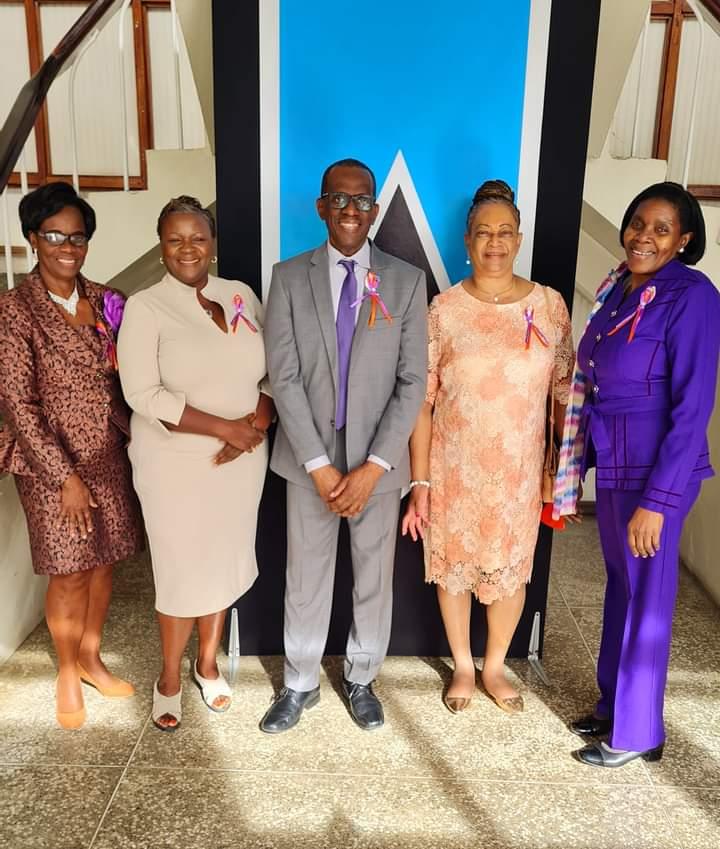
Insights
St. Lucia "Breaks The Bias" With New LGBTIQ-Inclusive Domestic Violence Act
Region(s)
TOPIC(s)
Type
Commentary
Author(s)
Publish Date
March 15, 2022
Share
On March 8, St. Lucia’s Parliament passed the landmark Domestic Violence Act, 2022, becoming one of the few countries in the Caribbean to provide legal protections to people in same-sex relationships who experience domestic violence—and the only country in the region to explicitly prohibit discrimination based on sexual orientation and gender identity in the implementation of such laws. Lesbian, gay, bisexual, transgender, intersex and queer (LGBTIQ) people whose relationships may fall outside a cisgender, heterosexual norm are now able to access all the resources and remedies provided in the Act, including protection orders from the court.
The Domestic Violence Act, passed on International Women’s Day, represents a big step forward not just for St. Lucia but for the entire Caribbean. St. Lucia’s Minister for the Public Service, Home Affairs, Labour and Gender Affairs, Dr. Virginia Poyotte, describes the Act as one of the “most progressive in the region.” The Caribbean saw its “first generation” of domestic violence laws in the early 1990s, which were generally vague and limited in scope. A “second generation” of laws in the late 1990s and 2000s refined the definition of domestic violence and expanded the types of relationships afforded legal protection. More recently, the 2020s have seen continued legislative advancement. Activists celebrated a 2020 amendment to the Trinidad and Tobago’s Domestic Violence Act which again expanded the types of relationships afforded protection, though the Act notably continued to excluded same-sex relationships, referring only to spouses or cohabitants of the opposite sex. Now, St. Lucia has changed the landscape with the region’s most inclusive provisions to date.
The scope of persons who can access legal protection has been expanded to include same-sex relationships. Terms like domestic relationships, spouse, cohabitant, visiting relationship, applicant and respondent are all defined in a gender-neutral way. The Act also expands the definition of domestic violence to include economic and sexual abuse, harassment and cyber-stalking, coercion, threats, intimidation and a wide range of harmful behaviors.
Critically for victims and survivors, access to justice and access to services are now explicitly available to everyone without discrimination. The Act’s Clause 5 mandates that public officers and service providers are not to treat victims and survivors in a discriminatory manner, on the grounds of (among other things) their sex, gender, marital status, sexual orientation and gender identity.
This legislative reform represents the hard work and advocacy of civil society in St. Lucia, including organization like Raise Your Voice St. Lucia and United and Strong, both members of Outright’s Frontline Alliance: Caribbean Partnerships Against Gender-Based Violence. Civil society has been instrumental in advancing this legislation in its most inclusive form and ensuring that LGBTIQ persons have equal access to justice.
The theme of this year’s International Women’s Day was “Break the Bias.” One enduring bias related to gender inequality is the tendency to address violence against women through biased legislation that excludes LGBTIQ people—and in doing so, fails to challenge the rigid binaries that in fact form the roots of gender-based violence. Outright will continue to support the work of the Caribbean Frontline Alliance as it works toward inclusive responses to gender-based violence, breaking the biases that limit LGBTIQ people’s access to security and justice.

Take Action
When you support our research, you support a growing global movement and celebrate LGBTIQ lives everywhere.
Donate Now